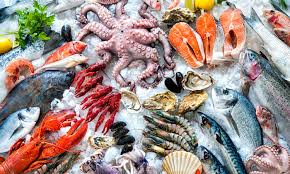
The seafood industry is a crucial component of global food systems, providing essential nutrients and supporting livelihoods worldwide. However, ensuring the sustainability of seafood resources is paramount. In this context, modern technologies such as miner machines, along with eco-friendly practices involving wood pellets, wood shavings for animal bedding, and chemicals, play a significant role in promoting sustainable seafood production and processing.
Miner Machines in Aquaculture
Miner machines, traditionally associated with mining operations, are now being adapted for use in aquaculture. These advanced machines are employed in the extraction and processing of minerals essential for aquaculture. For instance, minerals like calcium and magnesium, vital for maintaining water quality and fish health, are extracted and refined using miner machines. By ensuring precise and efficient extraction, these machines help maintain optimal conditions in fish farms, thereby enhancing productivity and sustainability.
Wood Pellets and Shavings in Seafood Processing
Wood pellets and wood shavings have found innovative applications in the seafood industry, particularly in processing and packaging. Wood pellets are utilized as a renewable energy source for powering seafood processing plants. Their high energy efficiency and low emissions make them an environmentally friendly alternative to fossil fuels. This transition to renewable energy not only reduces the carbon footprint of processing facilities but also aligns with global sustainability goals.
Wood shavings, on the other hand, are used as absorbent materials in seafood packaging. They help maintain the freshness of seafood by absorbing excess moisture during transportation and storage. This natural and biodegradable material offers an eco-friendly alternative to synthetic absorbents, reducing plastic waste and environmental impact.
Chemicals in Sustainable Aquaculture
The role of chemicals in aquaculture and seafood processing is multifaceted. While certain chemicals are essential for maintaining water quality and preventing disease, their use must be carefully managed to avoid environmental harm. Innovations in green chemistry are driving the development of safer, more sustainable chemical treatments for aquaculture. These chemicals help control pathogens and improve fish health without causing long-term damage to marine ecosystems.
Moreover, natural and organic chemicals derived from plants and minerals are being increasingly adopted. These alternatives are less harmful to the environment and contribute to the production of organic seafood, which is in high demand among health-conscious consumers.
Integrated Sustainability Practices
Integrating these technologies and practices creates a holistic approach to sustainability in the seafood industry. The use of miner machines ensures the efficient provision of essential minerals, while wood pellets and shavings reduce reliance on non-renewable resources and minimize waste. Concurrently, the adoption of green chemicals ensures that aquaculture practices do not compromise marine ecosystems.
Conclusion
As the global demand for seafood continues to rise, the industry must innovate and adopt sustainable practices to ensure long-term viability. By leveraging modern technologies such as miner machines, and embracing eco-friendly materials like wood pellets, wood shavings, and sustainable chemicals, the seafood industry can enhance its sustainability credentials. These integrated practices not only protect marine environments but also promote the responsible and efficient use of resources, ensuring that seafood remains a healthy and viable food source for future generations.
